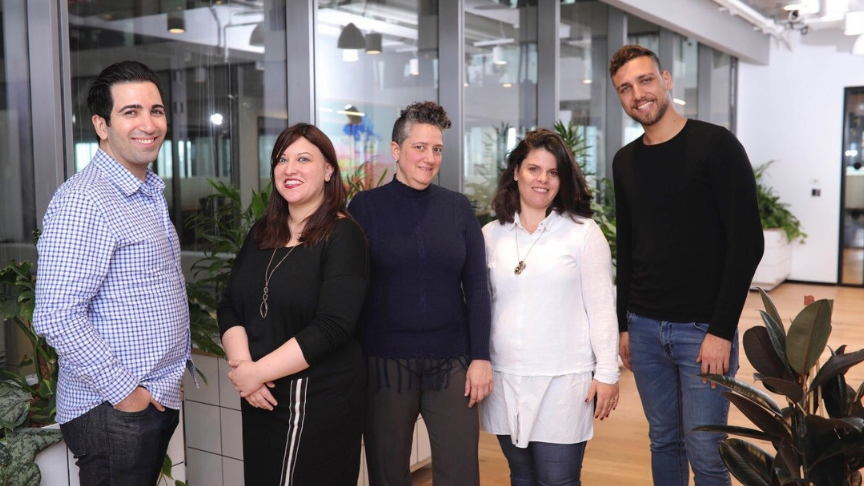What is the most innovative region in the world? For answering this question, the vast majority of people would intuitively take a look at the United States. But a closer examination reveals another impressing center of entrepreneurship: Israel! With over 6,000 startups, the country is considered the world record holder in relation to its population. Tel Aviv is often called the second Silicon Valley. Hundreds of global corporations are attracted to the country with offices and research facilities in order to benefit from the spirit and culture of entrepreneurship. It is not an exaggeration to say that a large ecosystem of entrepreneurship is growing.
Jan Pfeifer and Stephan Glasmacher from Detecon talked to founder Chedva Kleinhandler, who is very successful, even in the US too. She has explained us her personal understanding of the Israeli ecosystem of entrepreneurship.

The first network
When it comes to the special Israeli ecosystem, there is no alternative to take a look at the Defense Forces. They are commonly considered one of the main reasons for the startup boom and the growing ecosystem in the country. And that has several reasons. More than 150,000 active soldiers and 450,000 reservists belong to the Israeli military. After school, young adults, whether men or women, are drafted into the military. For three years the young adults serve in the Israeli army.
First of all, we have to mention that military service is in many cases more than armed service. "In the military, there are intelligent units with advanced technologies," explains Chedva Kleinhandler. This gives them access to technologies that are denied to most people. "After their service, they wonder: What else can we do with technologies like that?" says Kleinhandler. It is no coincidence that many tech startups are founded by people from such units - as well as by people from the military as a whole. "People from the army become your brothers," she says. This creates a very strong network.
Additionally, soldiers gain life experience at an early age and from which they can benefit later in their life. While in other countries like here in Germany, the majority of graduates goes to university after having finished High School, the Israeli youth takes a completely different path. During their military service, they gain experience as team players and leaders and learn to be creative by finding solutions in extreme situations. When the young adults finish their military service after three years and go to university, they have a lead in this respect. And, above all, an incredible large and strong network.
The Israeli market structure
Of course, the military cannot be the only reason to explain the ecosystem. So we want to take a look at the consisting ecosystems in Israel, coming to the seemingly strange conclusion: What encourages a growing ecosystem of startups and entrepreneurs is a missing ecosystem of large businesses.
In Israel, unlike in Germany, there are hardly any large markets with established corporations that provide people with a large number of jobs. In brief, there is no such thing as a comfort zone as we know it from other countries. Israelis have less opportunities to move from school or university to a large company and to make themselves comfortable for years. This can also be a challenge for founders that subsequently enter foreign markets, explains Kleinhandler: "It is easier to serve your own markets. In Israel, you have to go out of your comfort zone and understand how foreign markets work and where you want to go. On the one hand this is a challenge, but on the other hand a chance, because you have to deal with the characteristics of different markets." This feeling for markets beyond their own comfort zone can help the founders to understand different markets and thus close gaps in it.
Furthermore, this Israeli market structure is forcing the government support, which provides further support to the startups. "If your technology is good enough, you can get up to 75% of funding from the government," says Kleinhandler. "They want to encourage startups that can create more jobs in Israel and make it competitive." "They" is the Israel Innovation Authority, an organization within the Ministry of Economy. In Israel, the government has recognized the importance of startups and innovation in our fast changing environment. What do other governments do, especially in Europe or Germany? It seems that a centralized system like in Israel is not enforceable here.
Familiarity of Founding
All this favors a large ecosystem of entrepreneurship which leads to success. Thereby, the immensely high density of startups in the country seems to us to be a self-accelerating process. "In Israel, everybody knows a cousin, a friend, a classmate who has a startup - it is very familiar", explains Kleinhandler. In other societies such an infrastructure does not exist to this extent, which is why the step there often turns out to be a bigger challenge. Even if there are good ideas, there are too many concerns about the exact implementation, which rules have to be observed when setting up and what happens in case of failure - simply because it is not familiar. In Israel it is different, explains Kleinhandler: "Founding is not weird. If you have an idea, if you want to found a startup, everyone wants to give you an advice on everything." Just imagine if something similar happened to you in Western Europe….
Anyway – the European path for a digital ecosystem has to find its own way and include the common players as well. We trust in the (slowly) upcoming startup centers, like Berlin or Cologne.
We want to say thank you to Chedva Kleinhandler for the interesting insights into the Israeli startup ecosystem!







